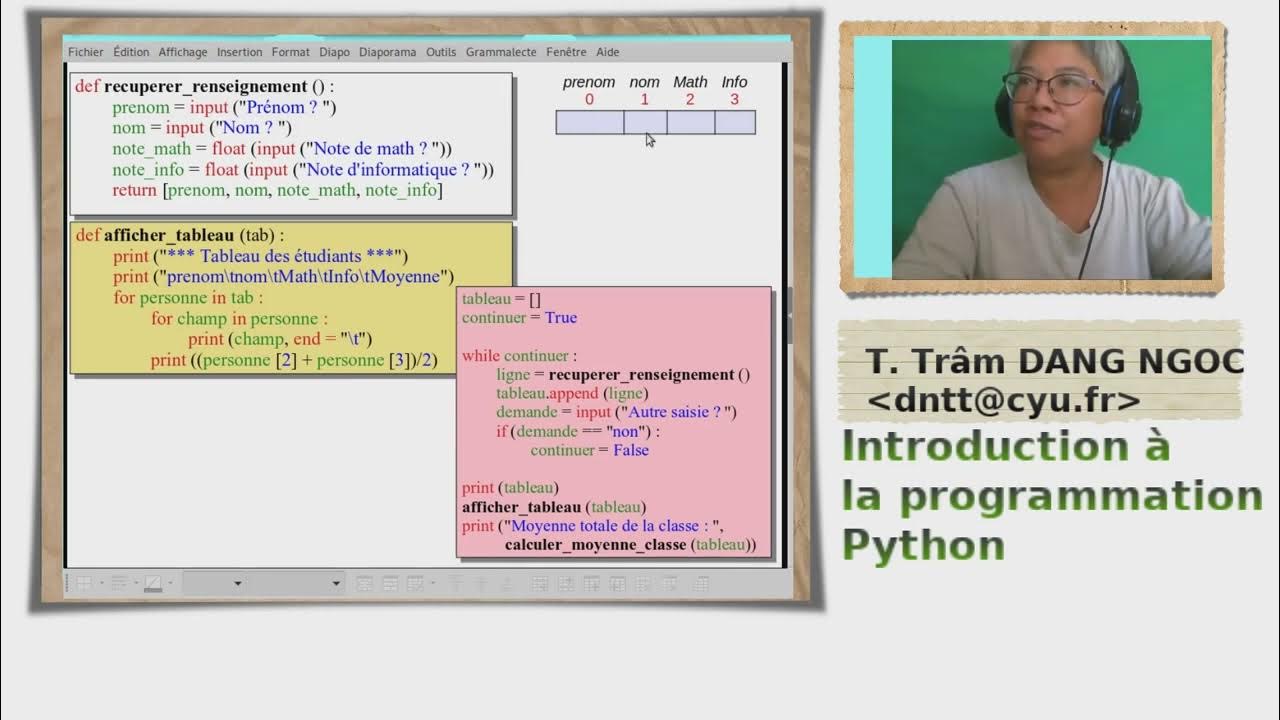Ton plan pour finir premier de la classe en 2025 (guide étudiant)
Summary
Please replace the link and try again.
Please replace the link and try again.
Q & A
What was the main turning point that made the speaker decide to take control of their studies?
-The speaker had a realization that they needed to take control of their life to avoid being a disappointment to their Asian parents, who they feared would send them to work in a factory if they failed.
Why does the speaker believe that studying actively is more effective than passively reading notes?
-The speaker argues that passive studying, like rereading notes, doesn't engage the brain effectively. Instead, active revision, such as explaining concepts to others or doing practice problems, forces the brain to process and retain information more effectively.
What method does the speaker use for active revision?
-The speaker synthesizes notes onto one side of a paper and then practices recalling the information by rewriting it from memory on the other side. This engages active memory recall, making the learning process more efficient.
What does the speaker recommend doing to improve focus and avoid distractions while studying?
-The speaker suggests shaping your environment to minimize distractions, such as putting your phone in a hard-to-reach place and creating a dedicated space just for studying. This reduces the reliance on willpower and makes it easier to stay focused.
What is the 'law of Parkinson' mentioned by the speaker and how does it apply to studying?
-Parkinson's Law states that work expands to fill the time available for its completion. The speaker suggests setting strict time limits for tasks to prevent procrastination and enhance productivity.
Why does the speaker emphasize the importance of constancy over intensity in studying?
-The speaker explains that consistent, small efforts over time (constancy) are more effective than intense but short-term cramming. This long-term approach helps retain knowledge better and reduces the stress of last-minute studying.
How does participation in class contribute to becoming a top student, according to the speaker?
-Participation in class helps students actively engage with the material, test their knowledge, and receive immediate feedback. It also makes a positive impression on teachers, leading to better grades and appreciation.
What role do social influences play in academic success, based on the speaker’s advice?
-The speaker stresses the importance of surrounding yourself with high-achieving peers. This creates a positive influence and naturally encourages better habits and motivation through healthy competition.
What is the significance of having a strong 'why' for studying, according to the speaker?
-The speaker highlights that having a clear and strong reason (a 'why') for studying is essential for long-term motivation. Without it, students may lose drive and give up when faced with challenges.
How does the speaker recommend balancing extracurricular activities with academic success?
-The speaker emphasizes the importance of consistency. By dedicating a small but regular amount of time to both studies and extracurricular activities like sports, piano, and YouTube, they managed to excel in all areas without feeling overwhelmed.
Outlines

This section is available to paid users only. Please upgrade to access this part.
Upgrade NowMindmap

This section is available to paid users only. Please upgrade to access this part.
Upgrade NowKeywords

This section is available to paid users only. Please upgrade to access this part.
Upgrade NowHighlights

This section is available to paid users only. Please upgrade to access this part.
Upgrade NowTranscripts

This section is available to paid users only. Please upgrade to access this part.
Upgrade NowBrowse More Related Video

23 leçons de vie de lycéens que j'aurai aimé connaître plus tôt.

TOP 5 SCPI : Quelle est la meilleure SCPI sur le marché ? Guide complet !

#1 - Comment réussir sa rentrée quand on est prof ?

Introduction à la programmation Python 5e : exemple de programme avec liste de listes

Comment réussir le lancement de son business ecommerce en 9 étapes ?

1E Pathfinder Shaman Guide - Feats
5.0 / 5 (0 votes)